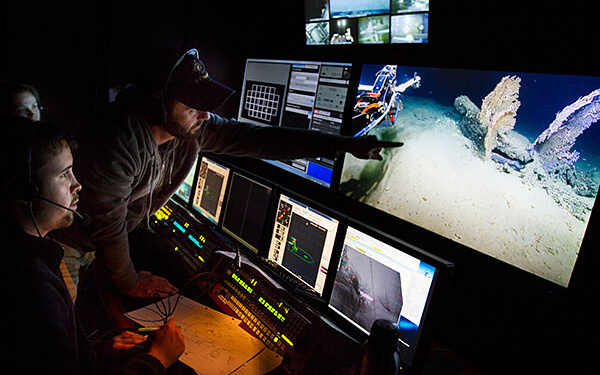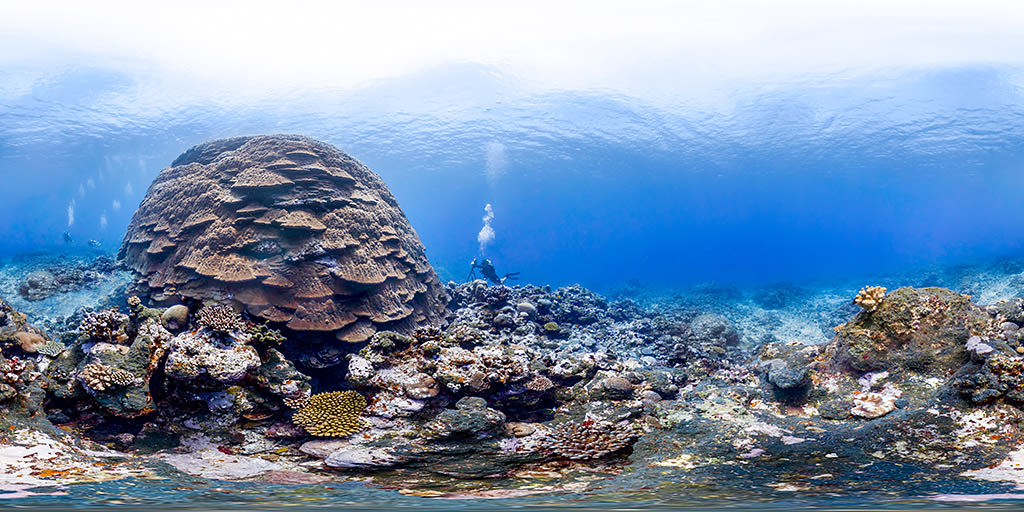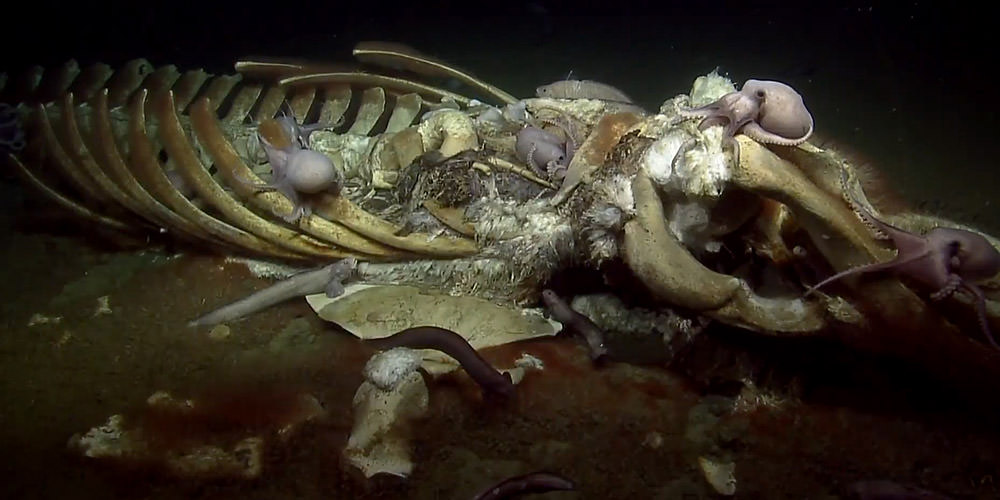The sites of your National Marine Sanctuary System are hubs for science, exploration, and education. At any given time, researchers are in sanctuaries exploring the deep, monitoring kelp forests, tracking coral reef health, and more.
Sanctuaries Live gives you a front row seat to sanctuary science. Watch expedition livestreams, chat with scientists, master educational resources, and more. As we learn more about the mysteries of the ocean, we can better protect our blue planet.
Expeditions
NOAA's Office of National Marine Sanctuaries works with partners to expand our understanding of sanctuaries through deep-water exploration and research. Learn about past, current, and future expeditions to your national marine sanctuaries, and find out how you can tune in to watch science in action.

From May 19, 2025 through May 28, 2025, the public is invited to join NOAA virtually and be among the first to explore never-before-seen shipwrecks in Lake Ontario National Marine Sanctuary. During the expedition, NOAA scientists and partners will deploy a remotely operated vehicle (ROV) outfitted with a high-definition camera and other technologies to survey and document the sanctuary's shipwrecks.

Sanctuaries Live Archive
Learn about past expeditions to your national marine sanctuaries.

Distance Learning Webinars
The National Marine Sanctuaries Webinar Series provides educators with educational and scientific expertise, resources, and training to support ocean and climate literacy in the classroom. Webinars are designed for teachers but are open to all.

Live Interactions
Join NOAA's Office of National Marine Sanctuaries and Exploring by the Seat of Your Pants for live interactions with NOAA and partner experts. Hear about scientists' experiences exploring national marine sanctuaries and ask them questions over chat. These interactions are the perfect opportunity for students and educators alike.

